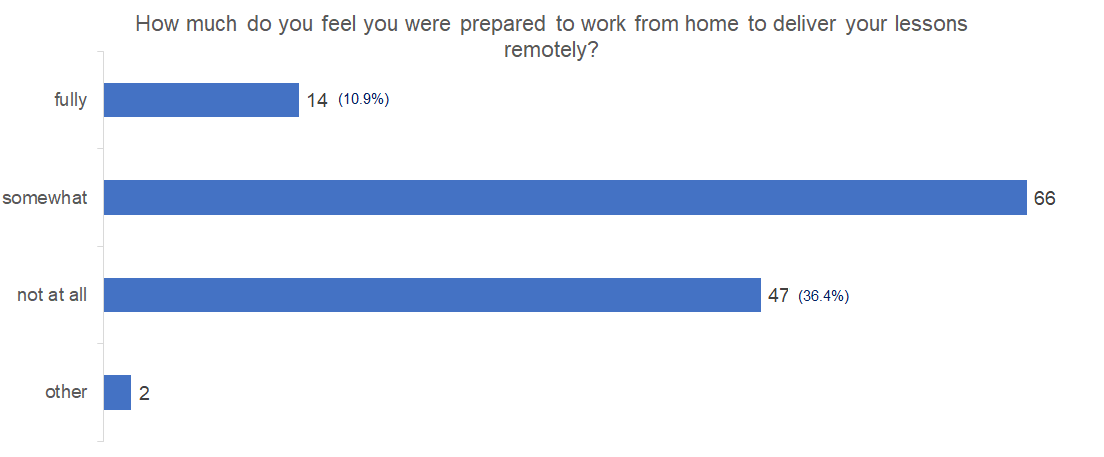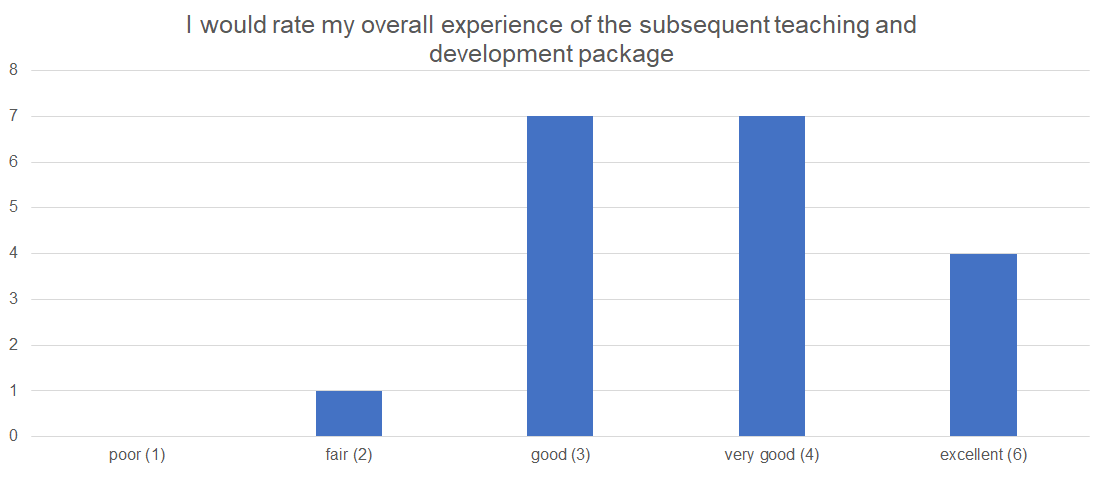Improving the quality of online teaching, assessment and engagement through the development of teacher knowledge and skills
As part of the Advanced Teacher Status (ATS) programme, participants are required to undertake a Quality Improvement Project.
SET’s Professional Status team reviewed all 60+ Quality Improvement Projects submitted as part of the October 2020 ATS cohort shortlisting the top 12 using a scoring matrix, including the below from Lora Scott, Curriculum Lead & Teaching Coach at Coventry College.
This editorial provides an overview of Lora’s improvement project which focused on the quality of online teaching, assessment and engagement through the development of teacher knowledge and skills.
Research context
Due to the Covid-19 pandemic and enforced lockdowns, the education sector needed to utilise online delivery tools to support, deliver and assess remotely to keep learners engaged and making progress.
In the spring of 2020, Lora identified that her organisation needed to rapidly invest in online platforms and applications to facilitate such teaching, upskill its workforce, and address shortfalls in equipment for both staff and students.
Lora’s improvement project gathered intelligence from academic journals and networking across the sector to reflect on practice from the first lockdown.
A training and development package to address skills gaps was conducted, with all teachers delivering lessons over MS Teams, developing the virtual learning environment (VLE) for asynchronous delivery, and training on further development. This was then delivered across the organisation.
Aims and objectives
- To identify elements of good quality online teaching, learning and assessment.
- To plan staff CPD sessions and resources that will support the move to online delivery and explain how to use some assessment apps and tools.
- Support staff with the roll-out of online delivery and increase the use of MS Teams.
- Increase the amount of remote teaching that learners are satisfied with.
Methodology
- Quantitative survey questions aiming to capture how many staff have access to sufficient technology to teach remotely from home and qualitative survey questions regarding skills levels and training needs.
- Qualitative focus groups to be completed at the end of the academic year to ask teachers to reflect on their development of online teaching.
- Quantitative attendance monitoring of lessons to offer a comparison between online and face-to-face engagement.
Project findings and recommendations
Findings
The following was captured by a JISC survey after the 2020 lockdown and indicates that 36% of teaching staff felt ‘not at all prepared’ and only 11% felt ‘fully’ prepared to deliver lessons remotely (JISC, 2020).

Figure 1. JISC survey post lockdown 1 capturing how prepared teachers felt for teaching online at Coventry College.
The following data was captured after the teaching staff completed the online delivery CPD training and development package.

Figure 2. shows the satisfaction with the overall experience of teaching and development package.
Discussing the value of the training and support
The overall satisfaction rating of good, very good or excellent at 95% supports the idea that developing teacher skills in delivering interactive teaching and learning across Microsoft Teams can be used effectively. Based on these findings, there is certainly some evidence to suggest that developing teachers in online teaching can offer a suitable and sustainable alternative to traditional forms of CPD. These findings point to high-quality provision that addresses strategic objectives of lower costs, skills gaps, and meets the satisfaction of participants by meeting their learning goals and providing a positive and rewarding learning environment.
Limitations and conclusions
Developing the skills of a selected group of teachers in online teaching and learning methods which utilise informal approaches to professional development can be used as an alternative to traditional forms of training, at no cost and as a sustainable alternative, whilst being well received by staff who report overall high levels of satisfaction. Using internal expertise could help address high turnover of staff, with Sivathanu and Pillai (2018) reporting that innovative technologies can help attract and retain talent.
As a result of the study, collaborative cross-organisational groups have been established and an innovative pedagogical approach to learning has been introduced. This will continue to be used to benefit teachers and students.
It is anticipated that further opportunities will be explored in the future to further develop the organisation’s teachers, which will lead to further study and enhance the learning and development of CPD provision with little investment.
The limitation of the study was its small scope and scale. It would also be interesting to test this with a wider scope of other subjects and on a larger scale of participants. These findings should be treated with caution due to the small sample size and short timeframe that limited the meaningfulness of the research. Adding qualitative data to a future sample would also complement this data.
Professional reading
Kim, L.E. and Asbury, K. (2020) ‘Like a rug had been pulled from under you’: The impact of COVID‐19 on teachers in England during the first six weeks of the UK lockdown’, British Journal of Educational Psychology, 90(4), pp. 1062–1083.
Hadar, L.L., Ergas, O., Alpert, B. and Ariav, T. (2020) ‘Rethinking teacher education in a VUCA world: student teachers’ social-emotional competencies during the Covid-19 crisis’, European Journal of Teacher Education, 43(4), pp. 573–586, [online]. DOI: 10.1080/02619768.2020.1807513
JISC (2020) CoventryCollege-CurriculumStaff2019/20–DigitalInsightsSurvey, JISC.
Sivathanu and Pillai (2018)‘Smart HR 4.0 – how industry 4.0 is disrupting HR’, Human Resource Management International Digest, [online]. Available at Vol. 26 No. 4, pp. 7-11. https://doi.org/10.1108/HRMID-04-2018-0059(accessed 21 February 2021).
Laurillard, D. (2016) ‘The Educational problem that MOOCs could solve: professional development for teachers of disadvantaged students’, ResearchinLearningTechnology, 2016, Vol. 24. [online]. Available at https://journal.alt.ac.uk/index.php/rlt/article/view/1738/pdf_30 (accessed 1 February 2021).
Kidd W. and Murray J. (2020) The Covid-19 pandemic and its effects on teacher education in England: how teacher educators moved practicum learning online, European Journal of Teacher Education, 43:4, 542-558, DOI: 10.1080/02619768.2020.1820480(accessed 10 March 2021).
Content from ATS Academic Poster - Viva preparation – Lora Scott – 2022
Find out more about the Advanced Teacher Status (ATS) programme.




